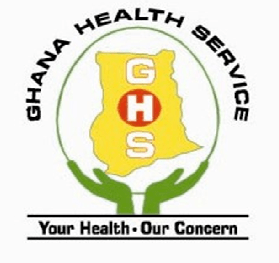Ghana at eradication stage in fight against leprosy
 Ghana has reached the eradication stage in the fight against leprosy, Dr. Ekow Amankrah-Otabir, National Programme Manager of Leprosy, the Ghana Health Service (GHS) has disclosed.
Ghana has reached the eradication stage in the fight against leprosy, Dr. Ekow Amankrah-Otabir, National Programme Manager of Leprosy, the Ghana Health Service (GHS) has disclosed.
With more than 40,000 registered cases in the country around 1948, the figure has reduced to only 385 as of December last year.
Speaking at the 2016 World Leprosy Day celebration held on at Elmina to celebrate their achievement and educate the public on the disease, he said the improvement and sustenance of the treatment of the disease by the service was paying off.
The celebration, which was on the theme” Early Case Detection, Minimizes Stigmatization” was attended by technical officers and their deputies of the Ghana Leprosy Service from across the country.
He said the GHS and its partners would not be complacent on the achievements made, but would continue to intensify efforts to ensure a leprosy free Ghana and appealed to the general public to report cases early to enable them to cure the disease completely.
Leprosy is a disease caused by Mycobacterium Leprae (M. Leprae), a rod shaped bacillus that affects mainly the skin and the nerves.
The first sign of leprosy is the appearance of patches on the skin which are accompanied by a loss of sensation at the affected areas.
Dr. Amankrah-Otabir said treatment was free and on an out-patient basis and therefore, did not required isolation of patients but however added that there was no vaccination for it.
He said there had been a tremendous progress from the era when there were over 40,000 registered cases to fewer than 370 cases, adding that the success had been as a result of commitment on the part of Government, Non-Governmental Organizations (NGOs) and officials of the GHS.
He said the leprosarium had been upgraded to a Leprosy Hospital where only patients with complications were admitted and managed and that once a patient had been diagnosed and treatment had begun, he or she was not a threat to anyone.
Dr. Amankrah-Otabir identified stigmatization as a major problem confronting leprosy patients and the Leprosy and advised the public not to use the phrase “Cured Lepers” as nobody was born with leprosy.
Mr. Jackson Kofi Nyarko, a panel member of the tropical Neglected Diseases of the World Health Organization (WHO) bemoaned how disabled persons were treated in the country and called on Governments to offer help that seeks to empower them.
“The help must come in a form that will empower us to do something to earn a living and not the mere provision of clothes, food and other relief items which may only last for some few days,” he said.
Mr. Nyarko who was once a leprosy patient said disabled persons were also capable of doing any other work and therefore should be offered equal job opportunities instead of camping them at one place.
Source: GNA
